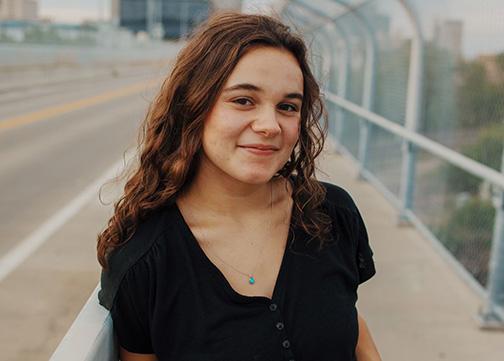This time of year is hard.
As high school students, mental health is preached at us from many different people. Coaches and teachers always tell us to take care of ourselves, but activities and school make that almost impossible to do, so how are we expected to always stay afloat?
For me, this period of time is when almost all of my activities intersect. I have show choir, speech, and musical going at all times on top of finishing my last required credits to graduate this spring.
Each teacher and coach I have in my life expects my 110 percent at each rehearsal or practice. But most of the time, my current state of being is at 75 percent at best. Each week that goes by, I find it harder to constantly be ‘on.’ I and many other students are experiencing extreme feelings of burnout, and there’s simply nothing that can be done about it.
Feeling like this is not special to just seniors. I know numerous underclassmen who are stressed on the same level I am and it makes me wonder: why is it like this?
When I entered high school, I was aware of the work I had before me. I knew that classes would get more difficult as I went along and activities would require a lot of my energy, but I was never told that I would feel like this. I do not think it’s normal for an 18-year-old to feel defeated at the end of each day, wishing for just one day off to worry about nothing.
I know that I did this to myself. I am the one who chose to do these activities and be involved. What I did not choose, though, was the amount of pressure to constantly be more and more involved, to constantly act as if everything is fine.
I think one of the downfalls of high school is the fact that we as students are fed the narrative that we need to be involved in everything that we possibly can. It feels as if the adults in our lives expect us to be robots; constantly working to our highest potential, never faltering and never setting boundaries.
This way of operating has caused numerous problems for me, and many other students. Personally, I have had multiple border-line breakdowns simply because of the pressure I’ve been put under by myself and my directors and coaches.
These four years have progressively gotten worse and worse as my activities have demanded more and more from my peers and me. It’s very rare that I hear of good experiences from the underclassmen I perform with. I only hear of how much they wish they could find a balance between school, activities and their own well-being.
So, how do we fix this? How do we find that balance?
I’m not sure that there’s a simple answer. I wish I could say that I have an action plan, but I don’t.
I think what does need to happen though, is better opportunities for us students to set boundaries with the coaches, teachers and adults in our lives. If we know that the adults in our lives will be receptive and accommodating for us, that can give us the confidence to advocate for ourselves.
I know how important student involvement is, especially in schools like Aurora. But at what cost are we willing to push our kids just so we can boast high numbers of student-athletes and student-performers? At what point does the line between being involved and being overworked become blurred?
I am forever thankful for the experiences that I have gained from my time in high school, but it saddens me that so many of my memories are clouded by feelings of anxiety and stress. I want upcoming high schoolers to have the same great experiences that I have had, but without all the pressure that I and many other students have had to face.
This is an issue that cannot be solved overnight, but it starts with us. Setting a new precedent that success can happen while also genuinely taking care of students’ mental health will propel us forward into a future that kids are excited for again.
EMMA BULLERMAN is a senior at Aurora High School and is a guest columnist.
Being overly involved comes at a high price
Image
Body





